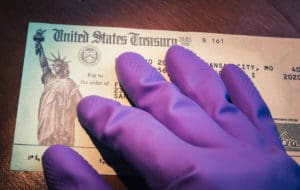
Pandemic-related financial assistance will no longer affect an individual’s eligibility for Supplemental Security Income (SSI) or the benefit amount, the Social Security Administration (SSA) has announced. The assistance includes a long list of pandemic payments, ranging from COVID-19 relief checks to state unemployment assistance.
Previously, the SSA had said that COVID relief payments would not be counted as income for determining SSI eligibility or monthly benefits, but that they would be excluded from being counted as an asset only for 12 months. After that, if the money was still in an individual’s account and it put them over SSI’s $2,000 asset limit, it could affect their eligibility or benefit payment.
Now the SSA has modified its rules and will be restoring SSI payments to those who had their benefits reduced or were deemed ineligible due to pandemic financial assistance. The agency now considers all types of pandemic-related financial assistance to be “disaster assistance,” meaning that they are excluded from being counted as a resource indefinitely.
The new policy covers a wide range of pandemic-related financial assistance. In addition to the three rounds of federal relief payments since the start of the pandemic, the list includes state stimulus payments, federal and state unemployment assistance and emergency rental assistance payments. (For the full list, click here.)
SSA is also working to make SSI applicants and beneficiaries whole. “We are reviewing SSI claims and other SSI records going back to the beginning of the COVID-19 pandemic to restore SSI payments for people whose SSI was affected,” the agency said.
In most cases, SSI recipients do not need to do anything in order for benefits to be restored. “We will restore your SSI payment and we will mail you a letter explaining the change,” the SSA said. “If we need information from you first, or if we need to take a new SSI claim, we will mail you a letter.”
If a beneficiary’s SSI stopped because they received or are still receiving pandemic-related financial assistance, and they have moved since their SSI stopped, they’ll need to call their local office to report the move and talk with the SSA about their benefits restoration.
In investigating bank balances above $2,000 ($3,000 for couples), the SSA officials are being instructed to “accept the individual’s reasonable allegation regarding how much assistance was retained and how the funds were held.” SSA employees should not be requiring further documentation to be submitted in these situations, says the National Center on Law & Elder Rights.
For the SSA’s explanation of the change on its Coronavirus page, click here.
For the SSA’s Emergency Message on the change, click here.
For a Practice Tip on the SSA’s rule change from the National Center on Law & Elder Rights, click here.
For an article in Disability Scoop, click here.

Recent Comments